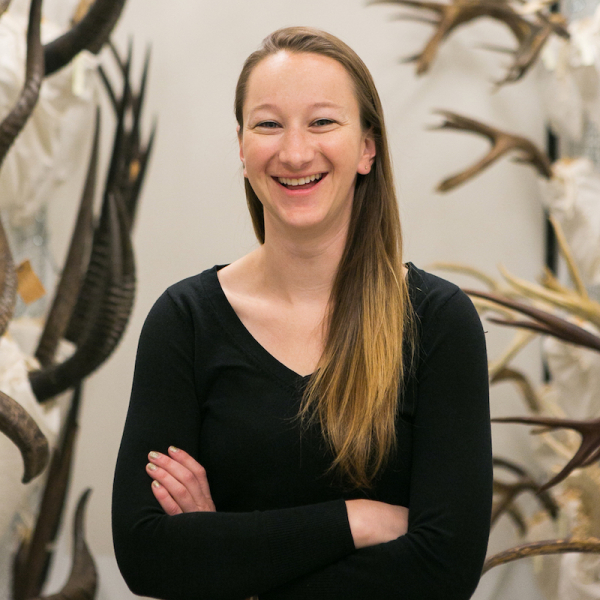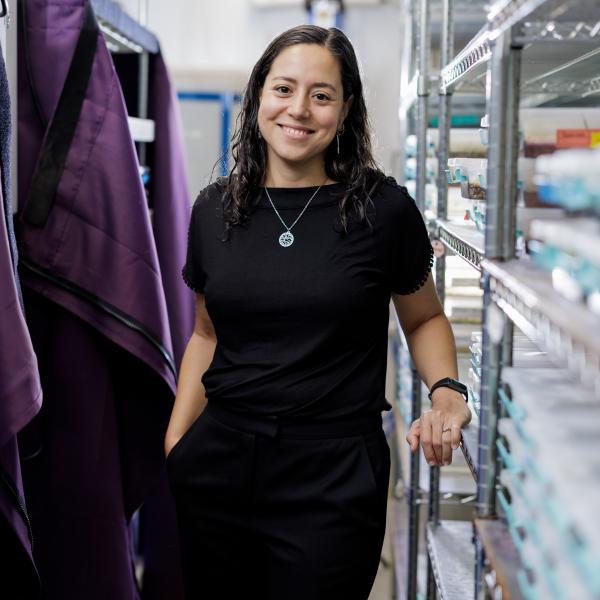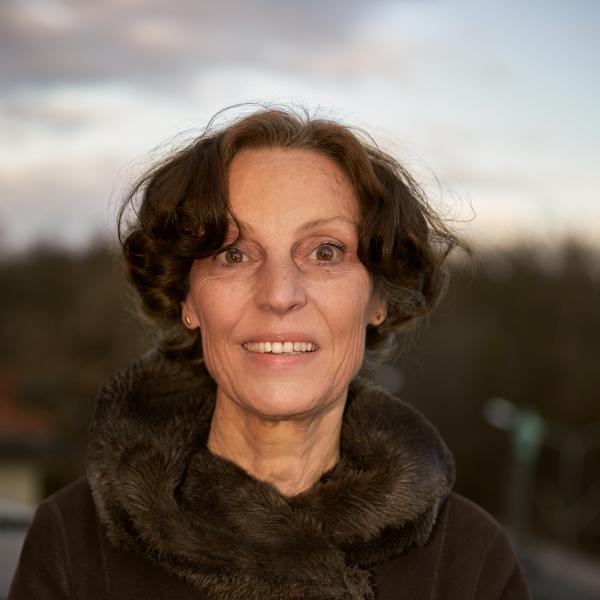At the installation ceremony held April 4, Joseph Jez gave the lecture “Exploring Nature’s Machinery.”
Earlier this month, Joseph Jez was installed as the Spencer T. Olin Professor of Biology. Provost Beverly Wendland and Dean Feng Sheng Hu gave introductory remarks at the ceremony, which was held for family, friends, and colleagues in Holmes Lounge on the Danforth Campus. Ralph Quatrano, who previously held the professorship and is now the Spencer T. Olin Professor Emeritus of Biology, was in attendance.
Professor Jez began his installation lecture, “Exploring Nature’s Machinery,” by acknowledging the work and impact of the approximately 100 people who have been members of his lab over the years. “Every grant proposal I've ever gotten has landed because a student ignored my advice or made a mistake in the lab that opened up a new direction,” Jez said. “You have to be open to what comes in science.”
About Joseph Jez
Joseph Jez was born in Fairbanks, Alaska, but he grew up outside of Philadelphia near where George Washington crossed the Delaware River. He started attending Penn State University as an English major hoping to pursue a career in journalism. However, a course in organic chemistry changed his plans, and he switched his major to biochemistry. While in college, he worked simultaneously in the protein crystallography lab of Professor Greg Farber and at a start-up company (BioPore) founded by Professor Roy Hammestedt. Those experiences sparked his interest in understanding how chemistry and biology blend and led him to the biochemistry and molecular biophysics graduate program at the University of Pennsylvania and to the lab of Professor Trevor Penning for his doctorate, which he earned in 1998.
Jez then moved to San Diego and worked at the Salk Institute as an NIH-NRSA postdoctoral fellow in Dr. Joe Noel’s group until 2001. There, he studied a family of plant proteins that synthesize a range of pharmaceutically and agriculturally useful molecules. He also met Courtney Starks, who would later become his wife. After working as a scientist at Kosan Biosciences in the Bay Area (2001–02), Jez moved to St. Louis and started his lab at the Donald Danforth Plant Science Center as an assistant member in 2002. He moved to the Department of Biology at Washington University in 2008. The Jez Laboratory seeks to understand how environmental changes re-model biochemical pathways in plants at the molecular, cellular, and organism levels to engineer these systems to address agricultural and environmental problems.
Since 2002, approximately 100 postdocs, graduate students, and undergraduates have contributed to discoveries from the group. Current work uses a combination of structural biology, protein chemistry, and plant biology.
As a Howard Hughes Medical Institute (HHMI) professor, he launched the Biotech Explorers Program, which introduces undergraduates to how teams in science can tackle real world problems using cross-disciplinary approaches. Jez has published approximately 200 papers. He also received a Presidential Early Career Award for Scientists and Engineers, the Phytochemical Society of North America’s Arthur Neish Young Investigator Award, a Fulbright Senior Specialist Award, an HHMI Professors Award, and is an American Association for the Advancement of Science Fellow. Jez lives in Kirkwood with Courtney; their daughter, Kayleigh; a guinea pig; and four chickens.
About Spencer Olin
Spencer Truman Olin, a St. Louis-area industrialist, philanthropist, and civic leader, was a longtime trustee and generous benefactor of Washington University. He began his career with the family munitions business, Western Cartridge Company in East Alton, Illinois, after graduating from Cornell University in 1921. He was vice president of Olin Corporation when its Winchester Repeating Arms subsidiary turned out 15 billion rounds of ammunition for the Allies during World War II. He continued as a director of the company following its merger with the Mathieson Chemical Corporation.
He also served in prominent leadership positions with the Republican Party. He raised millions of dollars for the 1952 presidential campaign of Dwight D. Eisenhower and was the national finance chairman for the Republican Party from 1950–60 and treasurer of the Republican National Committee from 1960–62.
Olin and his wife, Ann, were involved in a wide range of philanthropic interests in the St. Louis community. As a trustee of Washington University, Olin emphasized maintaining the beauty of the Hilltop Campus and served as a key liaison in promoting an effective partnership between the university and Barnes-Jewish Hospital, where he was a board member. Ann Olin served on the boards of numerous cultural organizations, including the St. Louis Symphony Orchestra.
The Olins gave many gifts to the university, including generous support for scholarships, fellowships, and facilities. Among the facilities are several devoted to patient care and research, such as the Clinical Sciences Research Building, the East Pavilion Facility, and the Johnson Institute of Rehabilitation. Olin was granted an honorary degree from Washington University in 1969 and was presented with the School of Medicine’s 2nd Century Award in 1992. He and Ann received the William Greenleaf Eliot Society “Search” Award in 1975. Ann died in 1976 and Spencer in 1995. They had three daughters, Barbara Olin Taylor, Judy Higgins, and Mary Dell Pritzlaff. Their daughter Mary followed her father’s example by serving on the Washington University Board of Trustees. She also served on the board of the Spencer T. and Ann W. Olin Foundation.




